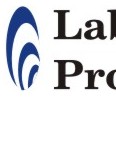 |
 |
 |
 |
 |
|
 |
 |
 |
 |
 |
|
 |
 |
 |
 |
 |
|
 |
 |
 |
 |
 |
|
 |
 |
 |
 |
 |
ARBITRATION Procedure for Referral for Arbitration A matter cannot be referred directly for Arbitration. It must first be referred to the CCMA or Bargaining Council for Conciliation and a certificate reflecting that the matter was not resolved issued by the Commissioner before it can be referred for Arbitration.
The following steps
should be followed:
Time limits: Arbitration should be applied for within three (3) months from the date on which the Commissioner issued the Certificate of Outcome reflecting that the matter was not resolved through the process of Conciliation. If the above time periods have lapsed, the referring party must formally apply for condonation. Processing of the Referral at the CCMA: The CCMA must give both parties at notice of the hearing date, time and venue. If a party fails to appear, the arbitration will continue on the scheduled date in their absence. The Arbitration hearing and what can be expected: The Commissioner may conduct the Arbitration in a manner that the Commissioner considers appropriate in order to determine the dispute fairly and quickly, but must deal with the substantial merits of the dispute with the minimum of legal formalities. During the Arbitration the parties would be expected to generally;
The law provides for the possibility of conciliation during the arbitration process. Settlement through conciliation is still the desirable option. Be prepared for possible settlement before or during the arbitration process. Legal Representation In Arbitration Proceedings a party to the dispute may appear in person or be represented only by-
If the dispute being arbitrated is about the fairness of a dismissal and a party has alleged that the reason for the dismissal relates to the employee's conduct or capacity, the parties are not entitled to be represented by a legal practitioner in the arbitration proceedings unless-
Awards and Execution The Commissioner will make a final and binding decision, called an Arbitration Award, within 14 days. It will no longer be necessary for parties to proceed to the Labour Court in terms of section 158(1)(g) and have the Labour Court make an arbitration award an order of Court before it can be enforced. Arbitration awards have the same status as orders of a Civil Court (such as the Labour Court, the High Court or the Magistrate's Court.) If the award is for payment of an amount of money, the successful party will be able to issue a warrant of execution and have the Deputy Sheriff enforce the award. Other awards such as reinstatement or awards for specific performance, will be enforced through the Labour Court in contempt of Court proceedings. All that will be necessary is for the director of the CCMA to certify an award as an arbitration award. Amendments to section 142(9) give the CCMA power to deal with contemptuous conduct, subject to the oversight of the Labour Court. Information contained herein is based on documentation available from the CCMA >> Labour Law >> useful links >> advice >> misconduct >> conciliation >> con-arb >> condonation |
|
|National Assistance: 0860 LABOUR/ 0860 522687
|
||||
| To join... | ||||
| (the Membership Fee is only R85pm): | ||||
|
||||